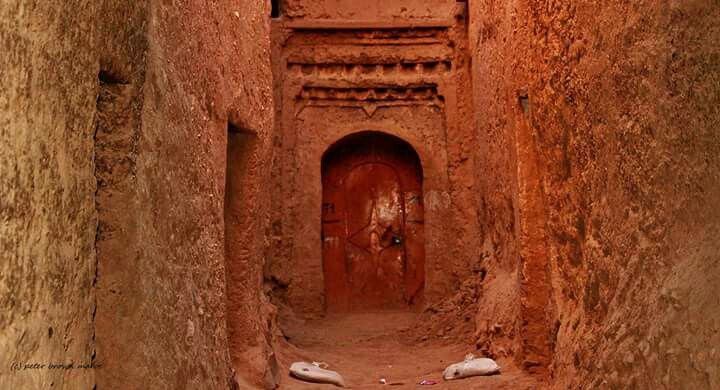
Today, November 30th, is a day meant to commemorate the story of the approximately 850,000 Jews who were forced to flee anti-Jewish persecution across the Arab world in the 20th century. Every year on this day, I have an opportunity to reflect on my own family’s story of exodus and every year I find it gives me new insights into the story of Israel and the Jewish people.
This month, I had a conversation with a member of the Jewish “anti-occupation” camp. In the course of our discussion, my co-conversationalist said that he prefers not to base his understanding of the world in fear.
This quip took me by surprise, but it seemed to provide the basis for many of his political positions. To provide some context, we were discussing the Israeli security fence, each looking for the inconsistencies in the other’s argument. He attempted to connect my support for Israel’s barrier with the President’s plan for a wall along the US-Mexico border. I protested, citing the reduction in the number of attacks from the West Bank since the barrier was constructed. He yielded saying, “I can’t argue with that.”
I might have smirked, satisfied that I had bested my opponent with an argument grounded in fact. Then he said it. “I just prefer not to base my understanding of the world in fear.” While the conversation itself focused on the issue of border security, I sensed that he meant also to suggest that Israel’s creation may have been a product of fear.
Having reached an impasse, the conversation ended but that sentence lingered in my ears and began to replace my self-satisfaction with self-doubt. I began to wrestle with a question—is my support for Israel borne out of fear?
To answer that question, I looked to my grandparents, refugees whose stories have always served as a source of inspiration for my own exploration of Israel and Judaism.
My grandparents, Savta Chana and Sabba Moshe, were born in Tinghir, Morocco sometime in the early 1930s. No one is quite sure of the date because there is no record of their birth, so we celebrate their birthdays on December 31, certain that the actual date must have occurred sometime in the last year. Tinghir itself is a small village at the base of the High Atlas Mountains comprised largely of the Amazigh people, more commonly known as Berber. In the early 20th century, Morocco was seen as a relatively safe place to be Jewish, thanks in large part to King Mohammad V who famously responded to the Vichy government’s demand to list all of the country’s Jews by saying, “We have no Jews in Morocco, only Moroccan citizens.”

However, Jews lived as second class citizens, or dhimmi in Morocco, subject to taxes and other restrictions on their daily lives. Over the two decades that followed the creation of the State of Israel, Morocco, along with the rest of the Arab world was virtually emptied of its Jewish citizens.
My own family suffered the consequences of being Jewish in the Arab world both before and after the creation of Israel. I heard stories growing up of occasional riots targeting the Jewish mellah, a walled Jewish quarter akin to a European ghetto. The men of the family would, after hiding their wives and children indoors for protection, be forced to stand outside and fight for their lives. In one such instance, sometime before Israel’s creation, my great-grandfather was lynched by an angry mob, leaving my grandfather, a boy of four or five years old without a father.
Yet, based on conversations I’ve had with my family, I am certain it was not fear that drove our flight from Morocco, but rather a radical love for and devotion to the Land of Israel, instilled in them generation after generation for thousands of years until finally, they returned home. To be sure, thousands of the Middle East’s Jewish refugees were forced to leave their homes behind, motivated by threats to their personal safety, but in searching for a new home, most chose Israel because of this love and devotion.
It seems, in our time, there is great reason for a Jewish person to be fearful. Synagogue shootings in Pittsburgh, neo-Nazi marches in Charlottesville, and a Labour leader in the UK whose public words and actions have left 40% of the country’s Jews considering emigration. Even in Israel, citizens must endure threats from hostile Iranian tyrants with the proxies in Lebanon and the Gaza Strip armed well enough to back up their rhetoric. Israel is a young country whose citizens have endured the pain of loss since its creation. The scars of war and Intifada and kidnappings and car rammings and stabbings are etched deep in every Israeli’s psyche. The further back in our history you look, the more you realize that this has historically been the price Jews have paid for their membership in this ethnoreligious group.
It is in this context that I often wonder what possessed my family to remain Jewish through the years. In hostile lands, facing threats to their lives and more commonly the burden of their faith, it would have been easier to turn their eyes away from Zion. It is because they did not succumb to this fear that I can answer confidently that Israel is not a trepidatious project of self-ghettoization, as the person with whom I spoke may have suggested. It is instead an expression of an enduring love that has survived a millennium built by Jewish refugees from across the world.
Liel Asulin is a writer and educator. He is currently a campus coordinator at CAMERA.

